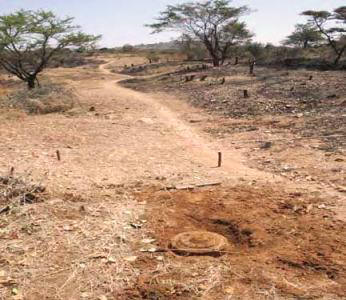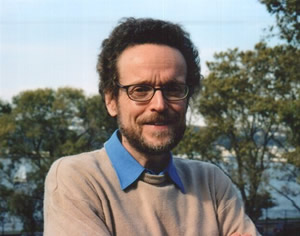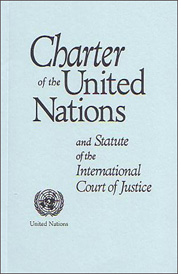By Otto Spijkers
 Following in the footsteps of Nick and Richard, I will write a series of posts on one and the same issue, in my case the human right to development. In the first part I will introduce this human right and the way it must be implemented into global policy, using some of Thomas Pogge’s ideas (as I interpret them). In Part 2, I will find out whether Pogge’s views and interpretation of the law have in fact been embraced by the international community, and in Part 3 I will look at future developments.
Following in the footsteps of Nick and Richard, I will write a series of posts on one and the same issue, in my case the human right to development. In the first part I will introduce this human right and the way it must be implemented into global policy, using some of Thomas Pogge’s ideas (as I interpret them). In Part 2, I will find out whether Pogge’s views and interpretation of the law have in fact been embraced by the international community, and in Part 3 I will look at future developments.  Thomas Pogge (see picture) phrases the debate on development in human rights language, which leads to very interesting results. He claims, in essence, that all people have a human right to development and a certain standard of living, and that this human right is actively violated by the international community, because the international community has created and sustains an international economic order that makes it very difficult – if not impossible – for many people to secure an adequate standard of living for themselves. One way, and perhaps the easiest way, to stop the global order from violating peoples’ human right to development is to compensate the victims somehow for the damage caused by the international economic order (for a criticism of Pogge’s proposal to fulfill this obligation by creating a Global Resource Dividend, see here). That may be easier than to create a perfect international economic order, in which all participants automatically get what they deserve.
Thomas Pogge (see picture) phrases the debate on development in human rights language, which leads to very interesting results. He claims, in essence, that all people have a human right to development and a certain standard of living, and that this human right is actively violated by the international community, because the international community has created and sustains an international economic order that makes it very difficult – if not impossible – for many people to secure an adequate standard of living for themselves. One way, and perhaps the easiest way, to stop the global order from violating peoples’ human right to development is to compensate the victims somehow for the damage caused by the international economic order (for a criticism of Pogge’s proposal to fulfill this obligation by creating a Global Resource Dividend, see here). That may be easier than to create a perfect international economic order, in which all participants automatically get what they deserve.  What is the relevant international law? According to Article 55 of the UN Charter, "the United Nations shall promote [..] higher standards of living, full employment, and conditions of economic and social progress and development". An individual cannot base a claim on this rather general provision in the UN Charter. What individuals can claim, are human rights; every human being has human rights. In the Universal Declaration of Human Rights the following right is acknowledged by the international community:
What is the relevant international law? According to Article 55 of the UN Charter, "the United Nations shall promote [..] higher standards of living, full employment, and conditions of economic and social progress and development". An individual cannot base a claim on this rather general provision in the UN Charter. What individuals can claim, are human rights; every human being has human rights. In the Universal Declaration of Human Rights the following right is acknowledged by the international community:
"[e]veryone has the right to a standard of living adequate for the health and well-being of himself and of his family, including food, clothing, housing and medical care and necessary social services, and the right to security in the event of unemployment, sickness, disability, widowhood, old age or other lack of livelihood in circumstances beyond his control" (Article 25).
And just to emphasize that all individuals really have this right, the Declaration says "[e]veryone is entitled to all the rights and freedoms set forth in this Declaration" (Article 2). And to emphasize that these rights cannot only be claimed at a national level, the Declaration says that "[e]veryone is entitled to a social and international order in which the rights and freedoms set forth in this Declaration can be fully realized" (article 28). Taken together, this creates a duty of the global community to ensure that all individuals within that community can enjoy their right to development. One may refer also to binding international treaties which intend to guarantee the same rights, such as the International Covenant on Economic, Social and Cultural Rights which is binding on all states party to that covenant. One of the rights recognized in the Covenant is the "the right of everyone to an adequate standard of living for himself and his family, including adequate food, clothing and housing, and to the continuous improvement of living conditions," and "the fundamental right of everyone to be free from hunger". In order to safeguard the latter right, member-states shall take measures "individually and through international co-operation [..] to ensure an equitable distribution of world food supplies in relation to need" (Article 11). This obviously creates a duty of global social justice, which is binding (unlike the Universal Declaration of Human Rights), namely the duty of the international community to ensure an equitable distribution of world food supplies in relation to need, and to do everything possible to ensure everyone can enjoy an adequate standard of living. (In Article 2 of this Covenant member states "undertake[..] to take steps, individually and through international assistance and co-operation, especially economic and technical, to the maximum of its available resources, with a view to achieving progressively the full realization of the rights recognized in the present Covenant".) – Otto

Sir
I have gone through your article and I found it worth reading. I am writing a derivative book on RIGHT TO DEVELOPMENT: ISSUES AND PERSPECTIVES . Can you please contribute a article for within 6000 to seven thousnd words.
Waiting for your reply
regards
Manoj
Faculty Associate
Ibs Ahmedabad,India
I’m not sure if the right to development can be use by one State to restrict the diplomatic protection of other State.
I guess so. That’s the intention of the African Charter of Human Rights, the General Assembly resolution 41/128 of 4 December 1986, and the Andean Chart to Promote and Protect Human Rights.